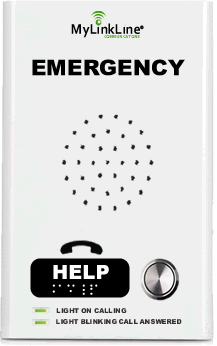Overcoming Fear of Elevators: 5 Expert Tips & Insights
Learn how to overcome your fear of elevators with expert tips and insights. Conquer elevator anxiety for a confident ride.
Fear of Elevators: Understanding, Overcoming, and Staying Safe
Elevators, often considered a hallmark of modern convenience, have revolutionized the way we navigate tall buildings and structures. Yet, for some individuals, the thought of stepping into an elevator can evoke intense fear of elevators and anxiety. This phenomenon, known as “elevator phobia” or “fear of elevators,” is a real and often debilitating condition that can impact a person’s daily life, social interactions, and even career prospects.
In this comprehensive article, we will delve into the intricacies of this fear of elevators, dispel common misconceptions, explore elevator safety, and provide practical tips for overcoming elevator anxiety.
What is a Fear of Elevators Called?
Elevators, often considered a hallmark of modern convenience, have revolutionized the way we navigate tall buildings and structures. Yet, for some individuals, the thought of stepping into an elevator can evoke intense fear of elevators and anxiety. This phenomenon, known as “elevator phobia” or “fear of elevators,” is a real and often debilitating condition that can impact a person’s daily life, social interactions, and even career prospects.
In this comprehensive article, we will delve into the intricacies of this fear of elevators, dispel common misconceptions, explore elevator safety, and provide practical tips for overcoming elevator anxiety.
What is a Fear of Elevators Called?
Formally known as “acrophobia,” a fear of elevators falls under the broader category of specific phobias. Acrophobia is characterized by an irrational fear of elevators of heights, which can manifest in various situations, including elevators. For those who experience this fear of elevators, the idea of being enclosed in a small, moving space suspended between floors can trigger intense anxiety. This reaction is often rooted in a mix of genetic predisposition, past experiences, and learned behaviors.
Common Misconceptions About Elevators
The fear of elevators often arises from misconceptions that have been perpetuated over time. One of the most prevalent beliefs is that elevators are prone to malfunctioning, suddenly dropping, or getting stuck between floors. However, modern elevator technology is highly advanced and comes equipped with multiple safety mechanisms that make such accidents extremely rare. Elevators undergo rigorous maintenance and inspections to ensure their functionality and passenger safety.
Another misconception relates to the notion that elevators can plummet uncontrollably due to a cable snap. In reality, elevators are designed with multiple support cables that are capable of carrying the car’s weight independently. In the unlikely event of a cable failure, additional safety systems activate to bring the elevator to a controlled stop, preventing any sudden drops.
Why Elevators are So Safe
Elevators have a remarkable safety record, and their reliability can be attributed to several factors. Multiple redundant cables support the elevator car, each capable of bearing its full weight. In the unlikely event of a cable failure, the remaining cables are more than sufficient to support the load and bring the elevator to a safe stop. Moreover, elevators are equipped with emergency braking systems that engage in the event of unexpected speed changes.

To further enhance passenger safety, elevators are designed with backup power systems. These systems ensure that elevators can operate even during power outages, preventing passengers from being trapped between floors. Additionally, sensors are installed around the elevator doors to prevent them from closing when obstructions are detected, minimizing the risk of accidents.
Elevator Accidents in the United States
Given the widespread use of elevators in the United States, it is natural to wonder about the frequency of elevator accidents. The truth is that elevator accidents are exceedingly rare. According to data from the National Elevator Industry, there are over 900,000 elevators in the country, transporting billions of people annually. Despite this high volume of usage, the number of accidents is minimal. Most elevator-related incidents involve minor injuries and are caused by factors like user error or maintenance oversights.
The rarity of elevator accidents can be attributed to the rigorous safety standards and regulations that govern the design, installation, and maintenance of elevators. Elevator technicians and engineers follow strict guidelines to ensure the safe operation of these machines.
How to Overcome Fear and Anxiety of Elevators
If you find yourself grappling with a fear of elevators, know that you are not alone, and there are effective strategies to manage and overcome this anxiety. Here are a few steps to consider:
Educate Yourself: Knowledge is a powerful tool in combating irrational fears. Educate yourself about how elevators work, their safety features, and the low likelihood of accidents occurring.
Gradual Exposure: Gradual exposure therapy can be highly effective in desensitizing your anxiety. Start by taking short elevator rides and gradually increase the duration over time. With each successful experience, your confidence will grow.
Deep Breathing and Relaxation Techniques: Practice deep breathing and relaxation techniques before and during elevator rides. These techniques can help you manage the physical symptoms of anxiety and promote a sense of calm.
Seek Professional Help: If your fear of elevators is severely impacting your daily life, consider seeking assistance from a mental health professional, such as a therapist or counselor. Cognitive-behavioral therapy (CBT) and exposure therapy are commonly used techniques to treat specific phobias.
Support System: Let friends, family, or colleagues know about your fear of elevators. Having a supportive network can provide comfort and encouragement as you work towards overcoming your fear.
Chances of Getting Stuck in an Elevator
While the idea of getting stuck in an elevator can be unsettling, the probability of this happening is extremely low. Elevators are designed with redundancy and backup systems to prevent such occurrences. Most elevator stops are due to minor glitches that can be resolved quickly, allowing passengers to continue their journey without incident.
What to Do if You Get Stuck in an Elevator
In the unlikely event that you find yourself stuck in an elevator, it’s essential to remain calm and follow these steps:
Stay Calm: Panicking will not help the situation and may exacerbate your anxiety. Take deep breaths and remind yourself that help is on the way.
Use the Alarm Button or Intercom: Most elevators are equipped with an alarm button or intercom system. Use these features to contact building personnel or security, who can provide assistance and keep you informed about the progress.
Wait Patiently: Elevator technicians will be alerted as soon as a problem arises. They will work diligently to resolve the issue promptly and safely. Modern communication systems allow them to keep you updated on the progress.
Avoid Trying to Pry Open the Doors: It’s natural to feel anxious in this situation, but it’s safer to wait for professionals to assist you. Attempting to force the doors open can be dangerous and might worsen the situation.
In conclusion, a fear of elevators is a genuine concern for some individuals, but it’s important to recognize that modern elevators are remarkably safe and reliable. By understanding the mechanisms behind elevator operation, gradually exposing oneself to elevator rides, and seeking professional help if needed, it is possible to overcome elevator anxiety and enjoy the convenience they offer with peace of mind.
Remember that getting stuck in an elevator is rare, and if it does happen, following simple guidelines can help ensure your safety and a swift resolution. Embracing education, awareness, and practical strategies can empower individuals to conquer their fear of elevators and navigate the world confidently.

Elevator Cellular Phone Lines
Go cellular and save 35% or more on monthly phone line fees. If you currently pay for an elevator telephone line you are paying too much. Our cellular phone lines work with all elevator telephones and monitoring services. To learn more click on the link below.

Elevator Phone Monitoring
Our monitoring and dispatch center has been delivering professional service for over twenty years. Our staff has extensive technical and interpersonal training to assist in emergency and non-emergency situations. To learn more click on the link below.

Emergency Elevator Phones
MyLinkLine will only install elevator telephones that meet code requirements. We also comply with ADA, ASME, ANSI and IBC codes in addition to all State and Local requirements if applicable. Volume pricing available. To learn more click on the link below.

